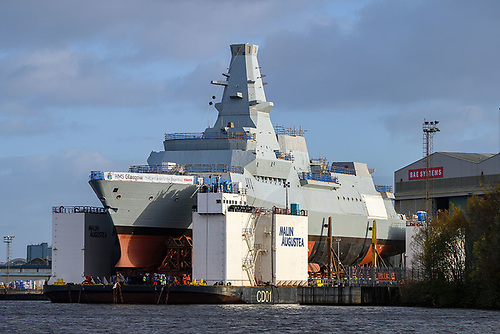Shipyards in Scotland are to construct five warships for the UK's Royal Navy following the British prime minister's confirmation of the next phase in a shipbuilding programme.
As BBC News reports, Rishi Sunak has accounced that BAE Systems two Clydeside shipyards have been awarded the £4.2bn contract to build a further five Type 26 frigates. The announcement follows an existing trio of the same class of newbuilds already under construction.
According to the Ministry of Defence (MoD) the deal would support 1,700 jobs over the next decade for the Royal Navy's 21st century frigates to be constructed at the shipyards in Glasgow where the newbuilds are to replace 12 ageing Type 23 frigates.
The BAE shipyards located in Govan and Scotstoun is where the trio of Type 26's which are designed for anti-submarine warfare and air defence, are already being built as part of an initial £3.7bn order that was announced in 2017.
At the time of that deal the MoD said five more newbuilds would be agreed in the "early 2020s".
The first of the frigates, HMS Glasgow (Afloat adds last week at Govan was transferred onto a semi-submersible barge) is to be on track later this year with delivery to the Royal Navy in the mid-2020s. The Type 26 leadship first began construction with steel-cutting in 2017.
Next to follow construction was HMS Cardiff and the third City class, HMS Belfast which as Afloat previously reported is also under construction at the Govan shipyard.
Across the North Channel, the Harland & Wolff Group (incl. its Belfast shipyard) was recently selected as part of a team bidder to construct for the MoD three crucial support ships for the Royal Fleet Auxiliary (RFA) at a cost of £1.6 bn. The support vessels are to serve the requirements of the Royal Navy.
For more coverage of the Clydeside shipyard's naval contract award can be read here.



























































